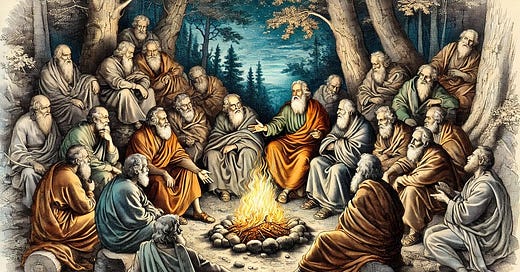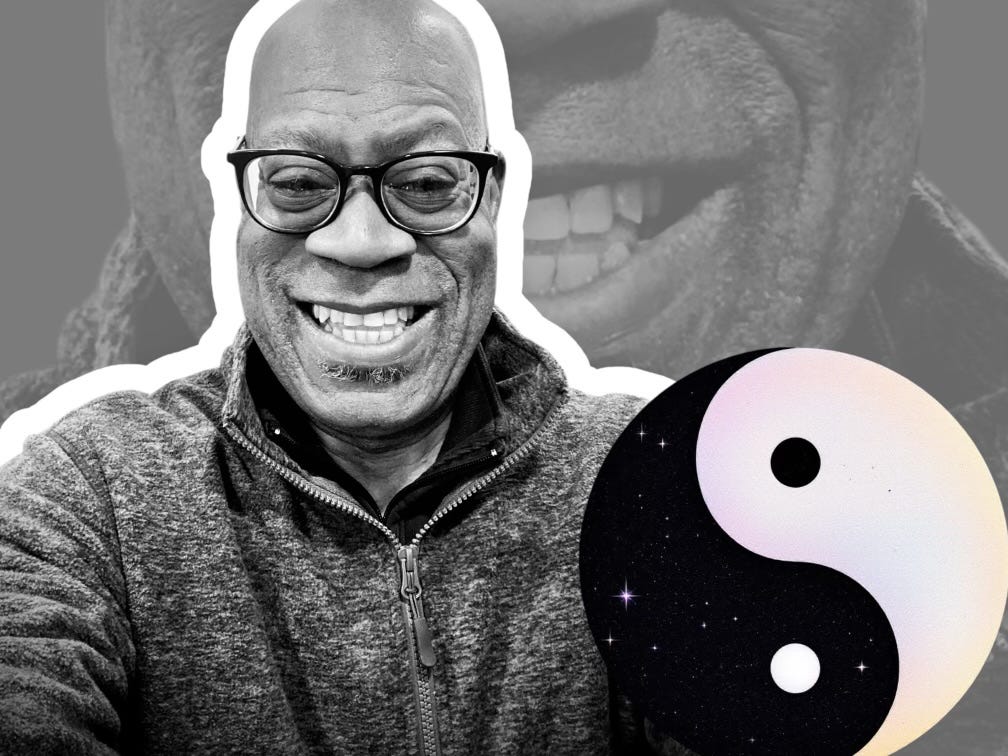Looking back, I sometimes wonder how my life would have unfolded if I had chosen a different path in college.
In the 1980s, as an undergraduate sociology major at Ohio State, I found myself deeply engaged with social theory, fascinated by the ways in which human behavior could be analyzed through structure and function. But it was an introductory philosophy class that first cracked open the door to something deeper—a way of thinking that would leave an indelible mark on me.
I was hooked. The rigorous inquiry, the probing of fundamental questions, the insistence on reasoned argument—all of it spoke to me in a way that few other disciplines had.
Later, in graduate-level social theory courses, I found myself grappling with the weight of thinkers like Kant, Hegel, Marx, and Weber. But it was that first exposure to philosophy, that electrifying moment of realizing that every assumption I held about the world could be deconstructed and examined, that stayed with me.
If I had to do it all over again, I would major in philosophy. Not because it would have changed the course of my career, but because it would have fundamentally enriched the way I see the world.
Now, decades later, I find myself returning to it—not out of nostalgia, but out of necessity. The world we inhabit today is shifting at a breakneck pace, filled with uncertainty, polarization, and a constant stream of information that often lacks depth. Philosophy, I’ve come to realize, is not just an academic pursuit, it is an essential tool for survival.
Philosophy as an Anchor in a Changing World
In a time when algorithms dictate much of what we see and hear, and when knee-jerk reactions often replace considered thought, philosophy remains a beacon of clarity. It forces us to slow down, to reflect, to ask, Is this true? Is this good? What does it mean to live a meaningful life?
In a world governed by quick soundbites and outrage cycles, the ability to think critically and articulate a well-reasoned position is more valuable than ever.
One of the great benefits of philosophy is that it teaches us how to question—how to sift through the noise and recognize flawed reasoning, cognitive biases, and manipulative rhetoric.
My good brotha Socrates, the gadfly of Athens, famously asserted that the unexamined life is not worth living. In our time, the unexamined life is not just an intellectual shortcoming; it’s a dangerous liability. Without the ability to engage in deep thinking, we risk being swept up by the tides of misinformation, ideology, and herd mentality.
More than ever, we need the capacity to engage in self-reflection, to sit with complexity, and to resist the allure of easy answers. In many ways, the teachings of the Stoics feel particularly urgent in the present moment.
Marcus Aurelius, in Meditations, reminded himself daily to maintain equanimity in the face of chaos, to control only what is within his power, and to accept the things he could not change. In a world marked by anxiety and uncertainty, this ability to cultivate inner peace is invaluable.
The Art of Thinking Clearly
Philosophy is, at its core, a discipline of clarity. It demands precision in language, careful reasoning, and an ability to see both sides of an argument.
At a time when public discourse is often reduced to ideological trench warfare, the philosophical mindset offers a different approach — the willingness to engage in open dialogue, to steelman rather than strawman opposing views, and to refine our own positions through challenge and debate.
This capacity for clear articulation is not just an academic skill, it is essential for navigating the real world. Whether in politics, business, or personal relationships, the ability to communicate complex ideas with nuance and depth is a rare and powerful asset.
In an age of increasing specialization, where many people are confined to narrow technical expertise, the broad intellectual foundation that philosophy provides is more valuable than ever.
I often think about how much philosophy has shaped my writing and speaking. The process of wrestling with big ideas—whether through Socratic dialogue, existential questioning, or the application of Eastern and Western wisdom traditions—has deepened my ability to communicate with precision.
The best writing, after all, is the result of clear thinking, and philosophy sharpens the mind like few other disciplines.
Wisdom in an Age of Information Overload
Perhaps the greatest gift of philosophy is wisdom. We live in an era where information is abundant, but wisdom is scarce. The ability to think deeply, to discern what truly matters, and to live in alignment with one’s highest values is more crucial than ever. Philosophy offers us a way of navigating life with intentionality, rather than being passively carried along by external forces.
The ancient Greeks saw philosophy not just as an intellectual pursuit but as a way of life. The Cynics, the Stoics, and the Epicureans all believed that philosophical inquiry should lead to transformation—not just of the mind, but of the soul.
In our modern world, where so much is dictated by external validation—social media, status, material wealth—the wisdom of these ancient traditions serves as a much-needed counterbalance.
A Lifelong Journey
Reengaging with Western philosophy at this stage in my life has been both humbling and invigorating. It has reminded me that learning is never finished, that wisdom is not a fixed destination but a lifelong journey. If I could go back, I would major in philosophy, but perhaps the real lesson is that it’s never too late to cultivate the philosophical life.
More than ever, we need people who can think, who can reason, who can engage in meaningful dialogue rather than reactive soundbites. We need people who can reflect on the deeper questions, who can embrace the unknown with curiosity rather than fear. Philosophy is not just for academia; it is for all of us. It is a way of seeing, of questioning, of being fully awake to the world.
And in times like these, there is no greater calling.
If you finding this daily Chocolate Taoist nomadic wisdom digital newsletter valuable in helping set a positive tone for your day, please join me as a paid member supporter.
Or would you be kind enough to consider tipping me some dirty chai latte love here if you feel so inclined.
Every bit counts as I strive to deliver high quality feature articles into your inbox on a daily basis. Never any paywalls, just my Taoist raw thoughts which are open to everyone on what it means to be human.
Your contributions are appreciated in support of my full time work and calling.






Absolute truth. We let ourselves get caught in the maelstrom of everyday life and the struggles that go along with it. We forget that we are marvelous creatures, each one unique and special. Like the song by the Police “We are Spirits in the Material World.”
I'm imagining that the need for wisdom and clear, simple strategies for navigating modern life is one reason Stoicism is gaining popularity. It's why I return again and again to The Chocolate Taoist.